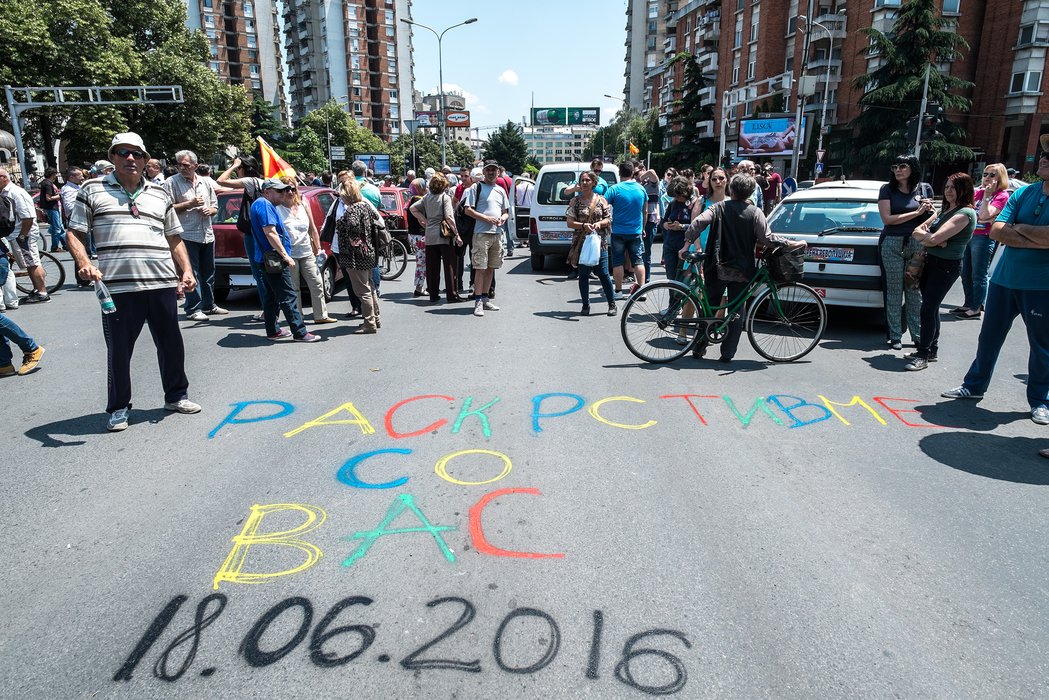
Peaceful Assembly
In April, a new protest movement - dubbed the Colourful Revolution - sprang up in response to the president's pardoning of 56 high level officials who were facing criminal charges. Under the slogan 'no justice, no peace' thousands gathered on the streets of Skopje and other Macedonian towns each day over a two month period. Sometimes painting buildings, monuments and roads in bright colours, the protestors voiced their disagreement with the goverment and made a series of demands. Most of the protests were peaceful and despite a torrent of negative and demeaning rhetoric from the state, the security forces largely facilitated the protestors rights, on one occasion even stepping in to prevent a clash with counter protestors. Violence did break out once when police used excessive force and arbitrary arrests following a break-in by demonstrators at the office of the President. Several CSO leaders have been detained as a result. Media polarisation continued throughout the protests – with some outlets focused on the exercise of the rights and the causes of the protesters, while others demonised the movement, even linking it with ISIS.
Association
Between April and June, 2016, while laws governing the operation of CSOs were generally respected, concern was raised about a financial inspection launched by the government into Citizen Association Most, a CSO that had been openly critical of election preparations. Attempts to infiltrate the civil society sector were observed through support for counter-assemblies in several Macedonian cities, as well as through volunteers supported to remove protest graffiti from monuments coloured during anti-government protests. Furthermore, information was disclosed on the financial situation of some leading activists who are labeled as hooligans, servants of the political opposition or foreign agents. Public institutions have so far failed to take action in finding those responsible for these attacks. A progressive decision to establish a council for cooperation between government and civil society was undermined by the lack of time and opportunity for civil society to be consulted before the body was established.
Expression
Recent political polarisation negatively impacted people's enjoyment of the freedom of expression between April and June this year. The editors of web portals Plusinfo and Sloboden Pecat had their homes vandalised with threatening and offensive graffiti, while individuals and civil society organisations were also targeted, sometimes by counter demonstration movements. Hate speech was recorded against CSOs during protests, and five journalists were attacked by police officers who wanted to prevent them from taking pictures of protesters and police clashing. Three Kosovar journalists were also detained without any justification. Online expression has also been impacted as fake profiles are used to make unsubstantiated allegations against journalists. The Government has also used the legal system to target critical journalists including Zoran Bozinovski, who has been charged with criminal association, espionage and blackmailing has been extradited from Serbia. Although Macedonia has freedom of information laws, recently journalists have been prevented from following important court trials 'public' meetings, while government sessions’ are classified as highly confidential. Fear of repercussions is leading to journalists and individuals self-censoring their views, while political polarisation continues to extend into the media sphere.